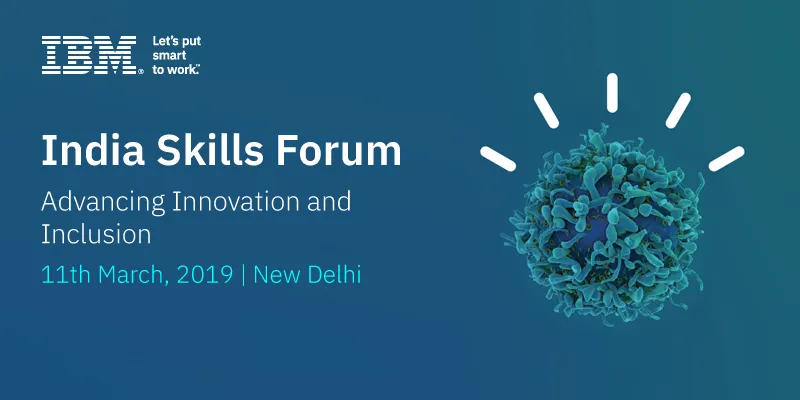IBM India Skills Forum: Encouraging STEM education and empowering girls to be tomorrow’s tech innovators
In 1952, former Prime Minister Jawaharlal Nehru requested a leading Indian scientist who was working with the Royal Horticultural Society in the UK to return to the country and lead the restructuring of the Botanical Survey of India. Her name was Janaki Ammal. Already recognised as one of the leading geneticists, cytologists and researchers in the world, she was also one of the torchbearers of women in STEM (Science Technology Engineering and Mathematics) in India. Despite being conferred the Padma Shri in 1977, few people outside of scientific and academic circles know about the remarkable contributions she made to agricultural research and science in India – a passion she pursued till her death at age 87, while working in her research lab.

In more recent times, BP Dakshayani made global headlines in the aftermath of India’s successful Mars mission. The former group director of the Flight Dynamics and Space Navigation groups of the Indian Space Research Organisation (ISRO) Satellite Centre led the team that navigated the Mangalyaan satellite’s path ensuring that it did not deviate from its trajectory before successfully falling into orbit.
Sadly, fewer girls today are following their footsteps.
Technology has transformed the world more dramatically than any other revolution in history and is one of the fastest growing sectors in the global economy. However, at a time when opportunity has never been greater, women are retreating from the fields of science and technology at alarming rates. The National Science Foundation estimates that 80 percent of jobs created in the next decade will require some form of maths and science skills. It is believed that by the age of eight, a majority of children develop an interest in technology but the transition from user to innovator rarely happens, if ever. This is primarily because the Indian education system with its focus on exams, learning by rote and scoring high grades has taken the focus off innovative thinking and research-based study. In addition, three separate but interconnected, factors : culture and society at large, one’s immediate career environment, and the individual herself - significantly influence women’s STEM careers.
A space to grow
Organisations like IBM are stepping in and collaborating with governments, industry associations and universities/schools to further the cause of a STEM education, particularly among girls – to help address India’s skills gap and prepare our workforce for the jobs of today, and those that will be created tomorrow.
In India, IBM lends its support by partnering with both government and non-profit organisations and its initiatives broadly rest on three pillars:
- Addressing large scale issues in countries like India with measures aligned to the government’s development priorities
- Understanding locally relevant issues/problems to address using a thought-through approach, and leveraging IBM’s expertise in technology and people
- Engaging CSR by bringing IBM’s wider expertise and range of professional competencies and technologies for quality impact
A platform for change
Reiterating its commitment to preparing students for 21st century opportunities, empowering and enabling women’s success in technology, IBM will host The India Skills Forum: Advancing Innovation & Inclusion.
As it has done throughout its century-long history, IBM continues to work to ensure women around the world have the inspiration, education, tools, and support to not only have strong career advancement at IBM, but engage with the world at the highest levels. The key objective of the IBM India Skills Forum is get organisations in both the public and private sectors to partake in deliberations on this significant topic and to join IBM on this quest to improve the current trajectory of women in technology and provide platforms to help foster long-term, sustainable success of women in technology and beyond.
It’s important that we all take part in rewriting the existing narrative, to create a brighter future for India and its girls.
Info box: Why we need change
- Only 28% of all the world’s researchers are women
- Only 28% of all students enrolling in higher education in ICT are women
- Only 27% of all students enrolling in higher education in the engineering, manufacturing and construction fields are women
- Only 17 women have won a Nobel Prize in physics, chemistry or medicine since Marie Curie in 1903, compared to 572 men.








